Category: Learn/Brainstorm/Try
-
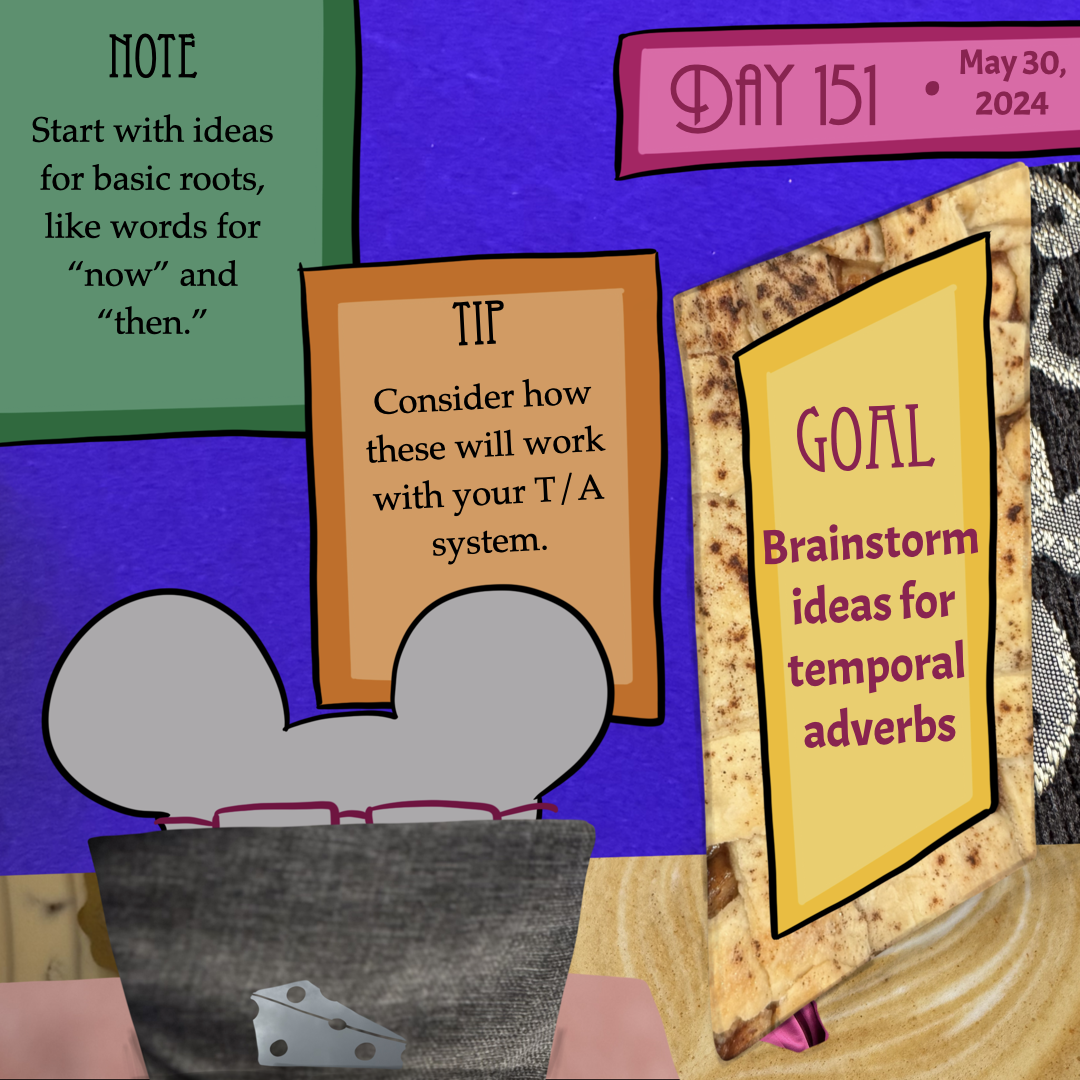
Day 151: May 30, 2024
Goal: Brainstorm ideas for temporal adverbs Note: Start with ideas for basic roots, like words for “now” and “then.” Tip: Consider how these will work with your T/A system. Work focus: Learn/Brainstorm/Try Continue your adverbial brainstorming by turning your attention to temporal adverbs, starting with ideas for basic roots. Common basic temporal adverbs include “now”…
-
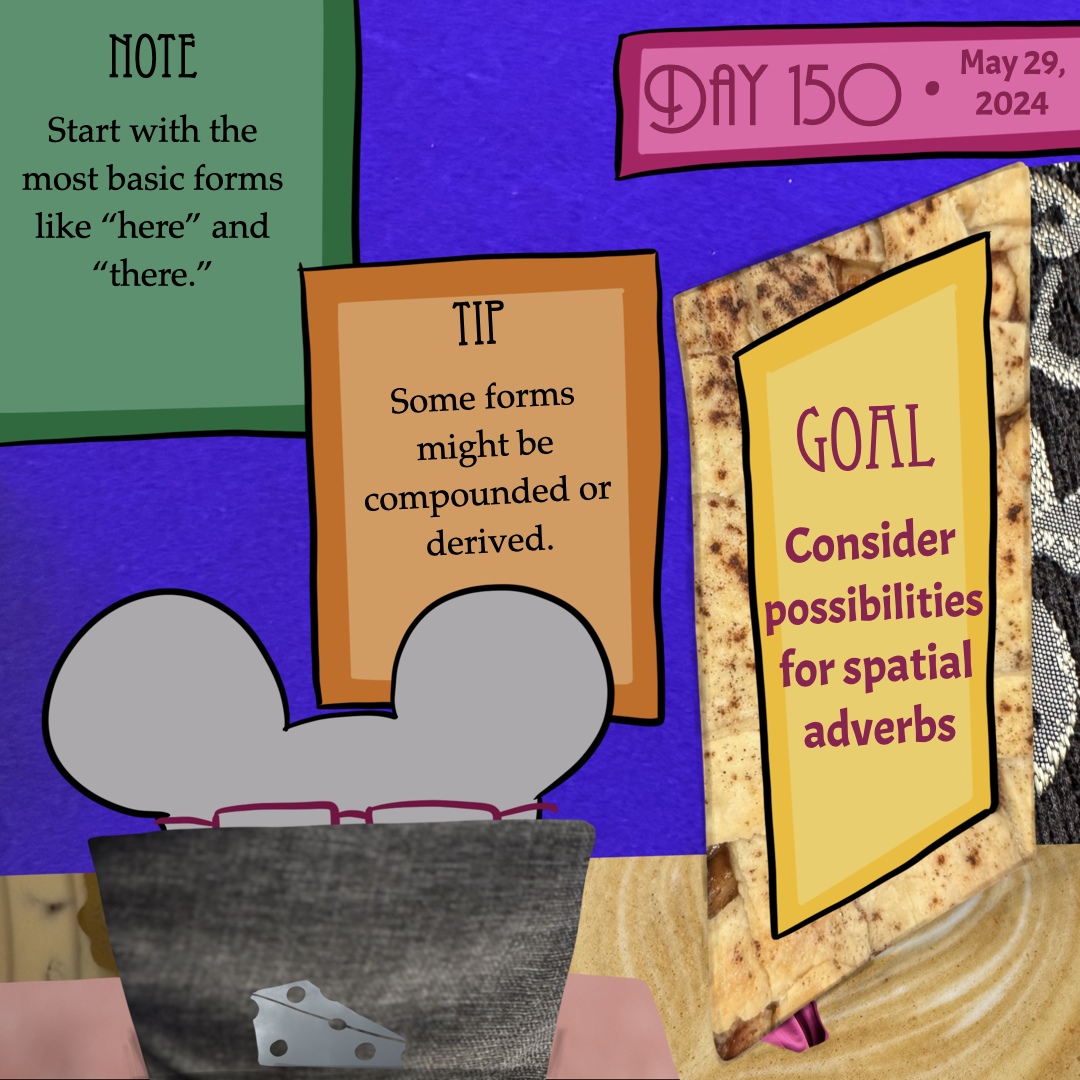
Day 150: May 29, 2024
Goal: Consider possibilities for spatial adverbs Note: Start with the most basic forms like “here” and “there.” Tip: Some forms might be compounded or derived. Work focus: Learn/Brainstorm/Try Today the focus shifts to adverbs! Consider possibilities for spatial adverbs in your language, starting with basic forms like “here” and “there.” Some adverbs might be compounded…
-
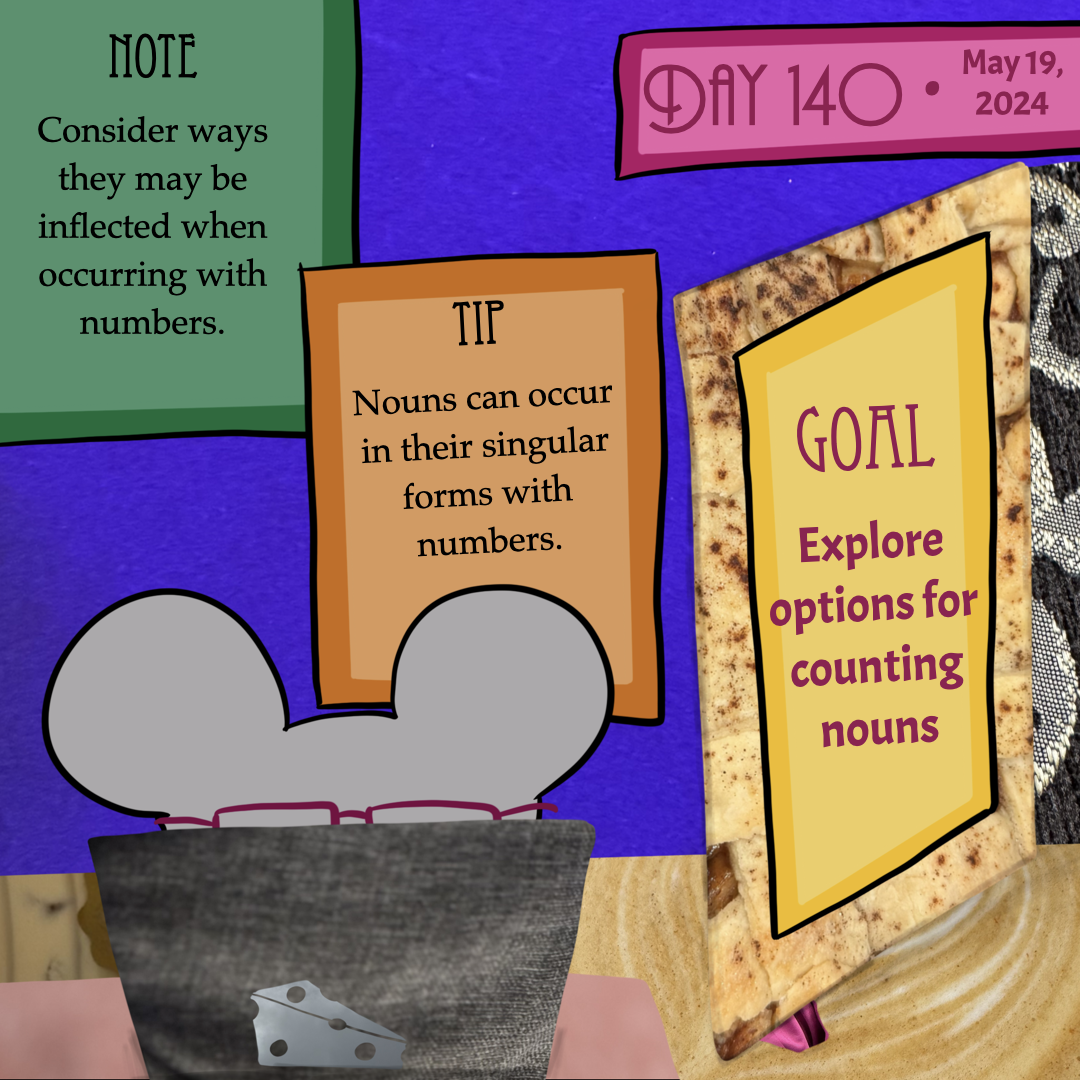
Day 140: May 19, 2024
Goal: Explore options for counting nouns Note: Consider ways they may be inflected when occurring with numbers. Tip: Nouns can occur in their singular forms with numbers. Work focus: Learn/Brainstorm/Try Numbers can work differently from other words in language—so much so that they are not easily categorizable as one lexical category or another. In some…
-
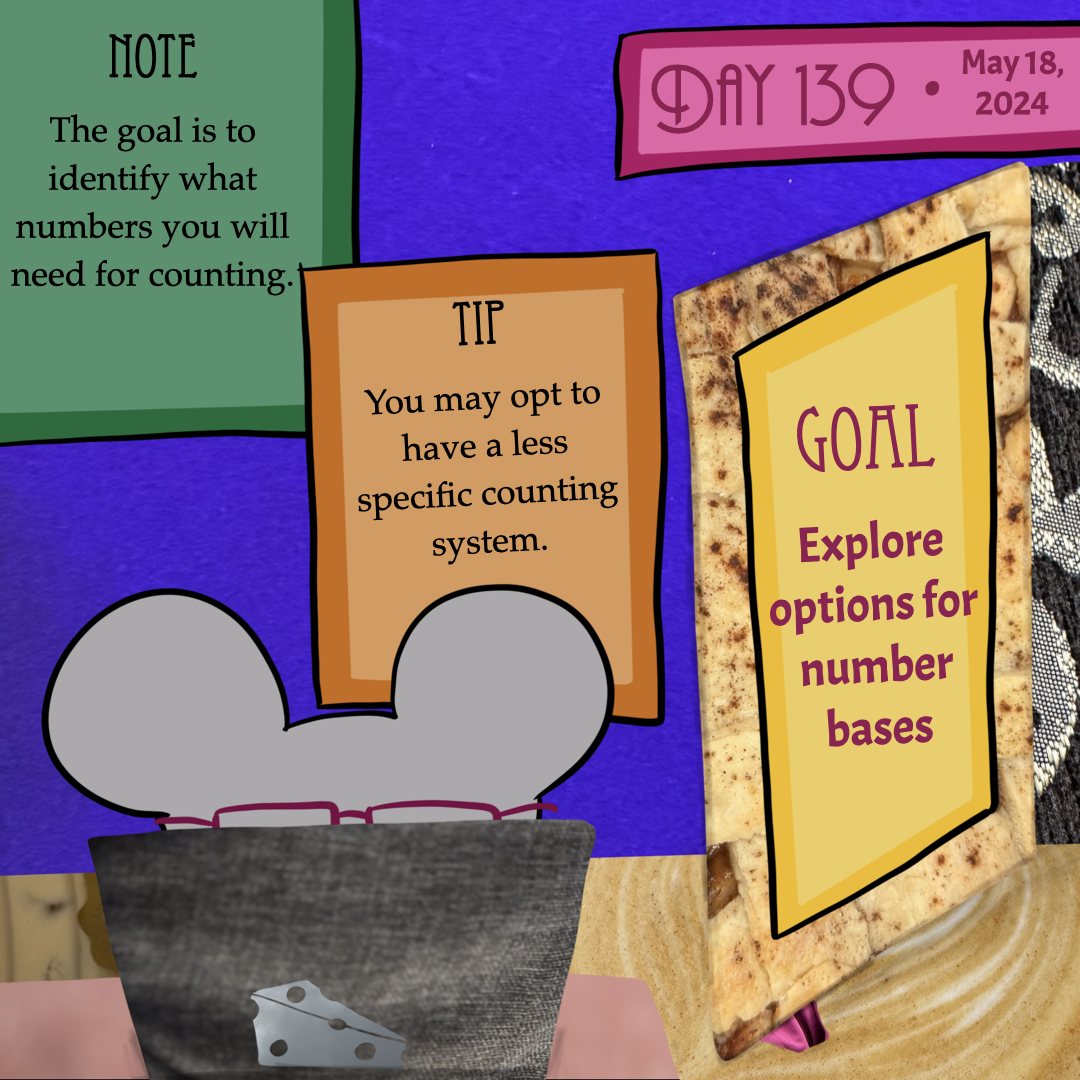
Day 139: May 18, 2024
Goal: Explore options for number bases Note: The goal is to identify what numbers you will need for counting. Tip: You may opt to have a less specific counting system. Work focus: Learn/Brainstorm/Try Today’s goal shifts the focus to numbers in your conlang. Spend today exploring options for number bases. Some options you might consider…
-
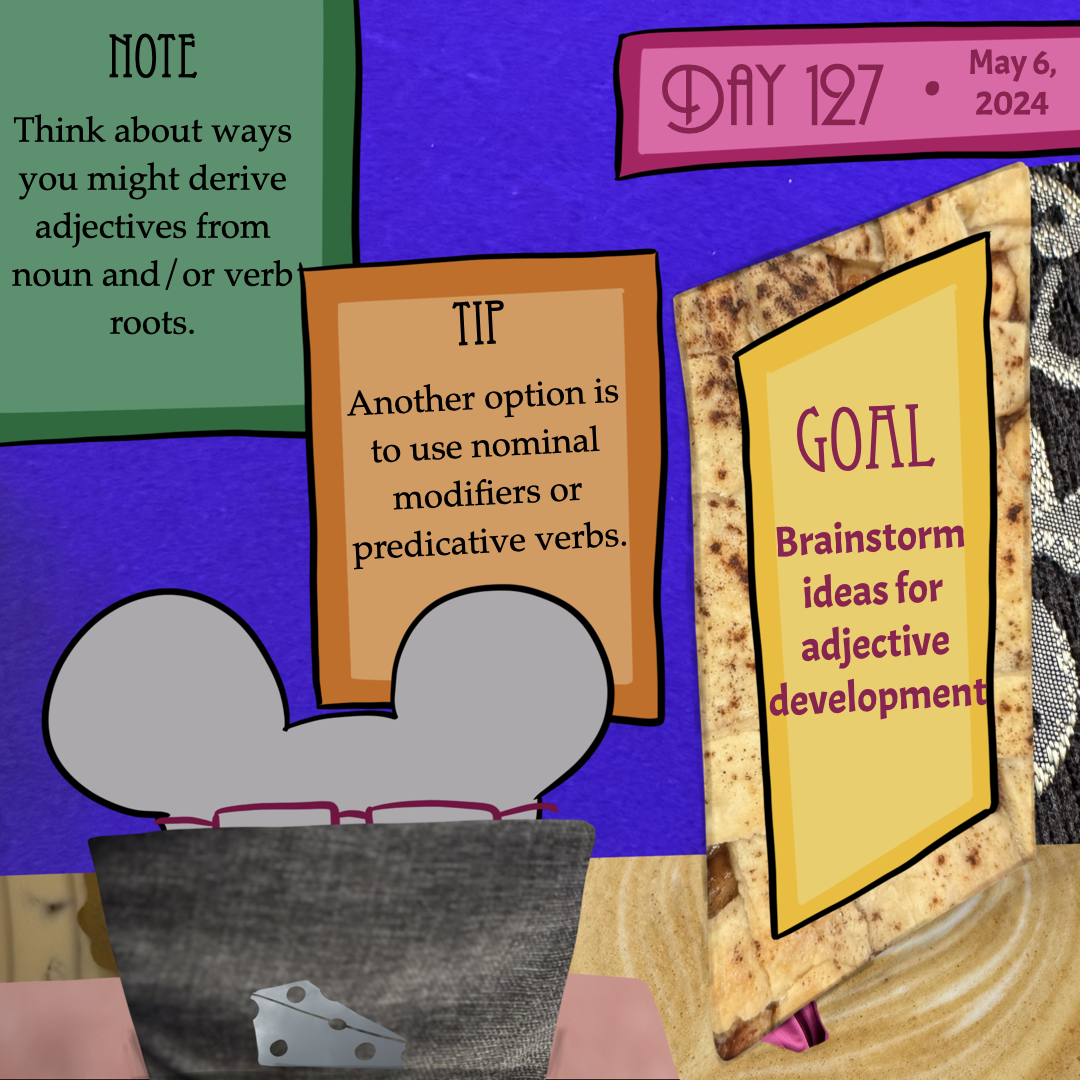
Day 127: May 6, 2024
Goal: Brainstorm ideas for adjective development Note: Think about ways you might derive adjectives from noun and/or verb roots. Tip: Another option is to use nominal modifiers or predicative verbs. Work focus: Learn/Brainstorm/Try Today’s goal is to brainstorm ideas for ways you might create new adjectives (beyond any basic adjectives you might have in your…
-
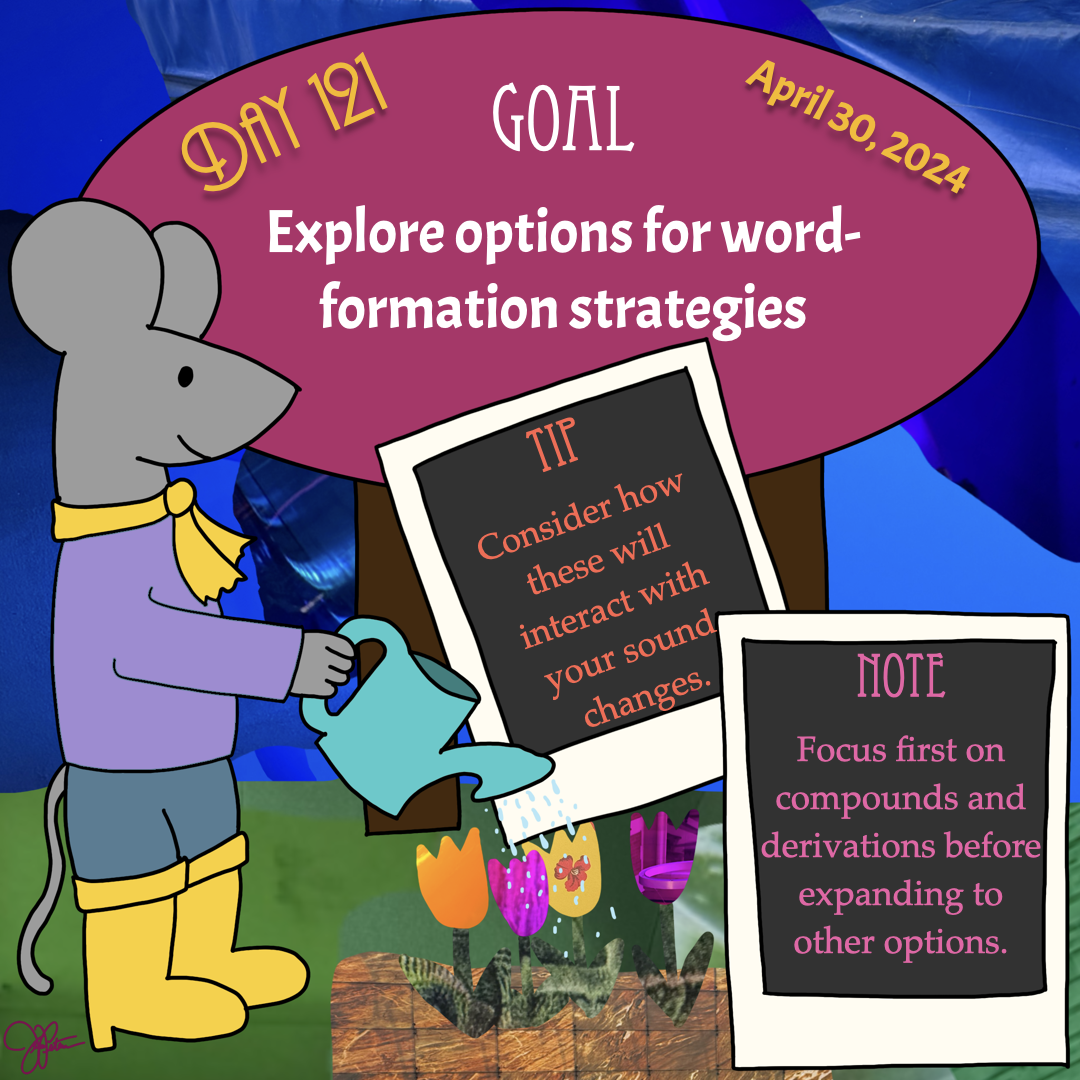
Day 121: April 30, 2024
Goal: Explore options for word-formation strategies Note: Focus first on compounds and derivations before expanding to other options. Tip: Consider how these will interact with your sound changes. Work focus: Learn/Brainstorm/Try Today shifts the focus to word-formation strategies, specifically focusing on compounding and derivation (though others are possible, these are two that show up in…
-
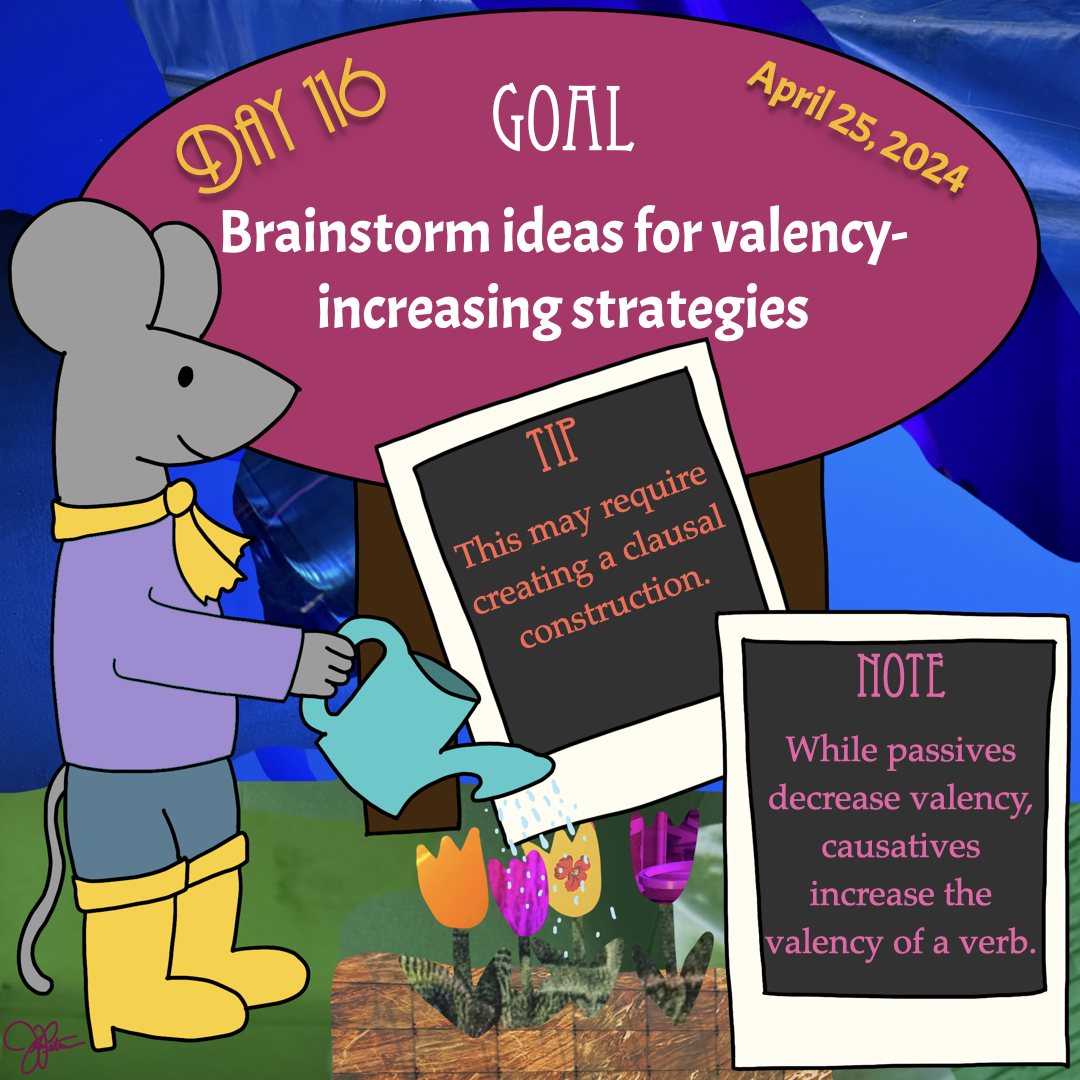
Day 116: April 25, 2024
Goal: Brainstorm ideas for valency-increasing strategies Note: While passives decrease valency, causatives increase the valency of a verb. Tip: This may require creating a clausal construction. Work focus: Learn/Brainstorm/Try Today’s goal is to start generating ideas for how you might handle valency-increasing strategies, such as the causative. A causative adds an argument to a verb’s…
-
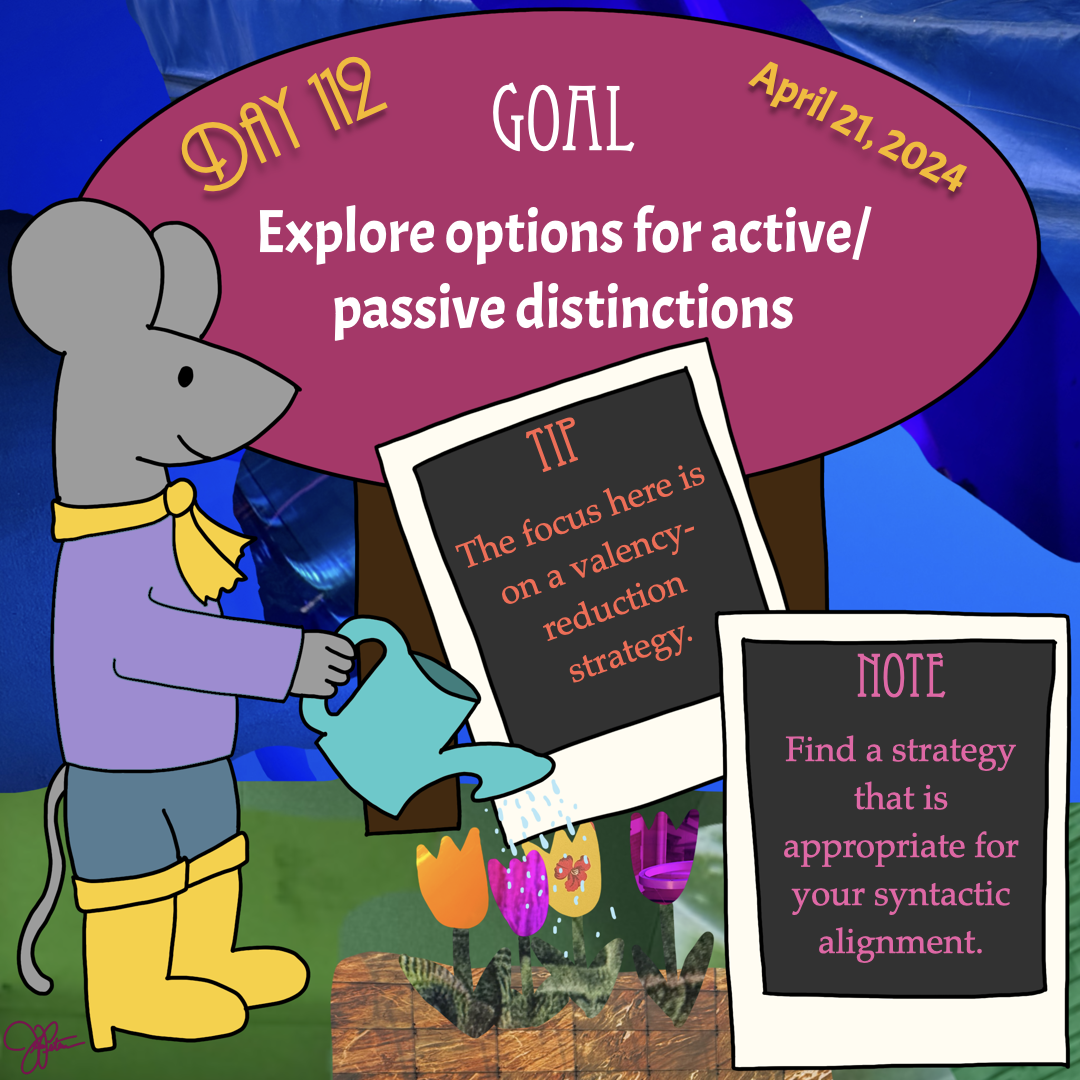
Day 112: April 21, 2024
Goal: Explore options for active/passive distinctions Note: Find a strategy that is appropriate for your syntactic alignment. Tip: The focus here is on a valency-reduction strategy. Work focus: Learn/Brainstorm/Try Another type of inflection that can occur with verbs is passivization. This inflection is special, though, because it actually changes the valency of a transitive verb…
-
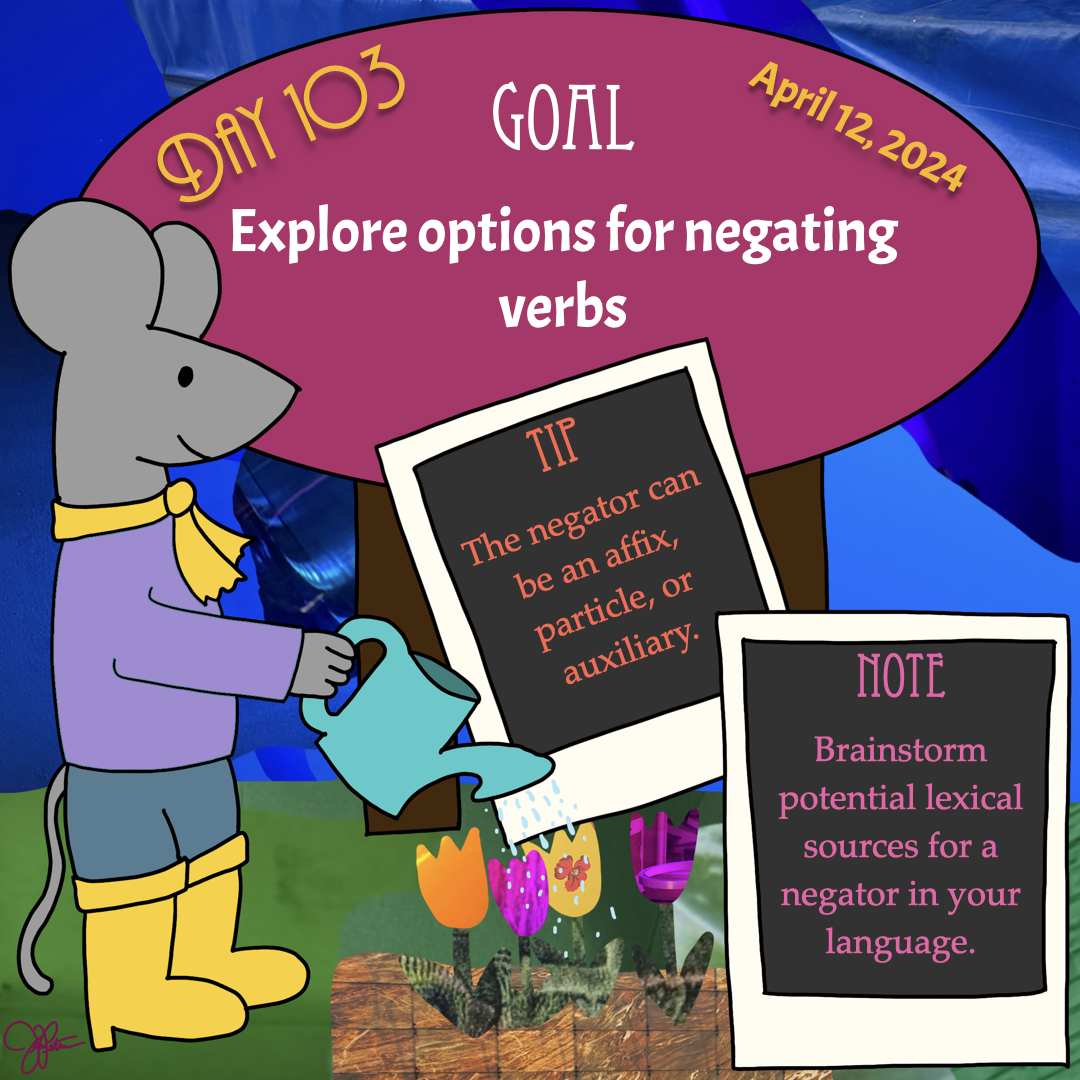
Day 103: April 12, 2024
Goal: Explore options for negating verbs Note: Brainstorm potential lexical sources for a negator in your language. Tip: The negator can be an affix, particle, or auxiliary. Work focus: Learn/Brainstorm/Try Today’s focus is on exploring options for negating verbs. You have a variety of options for negation strategies, such as creating an affix that attaches…
-
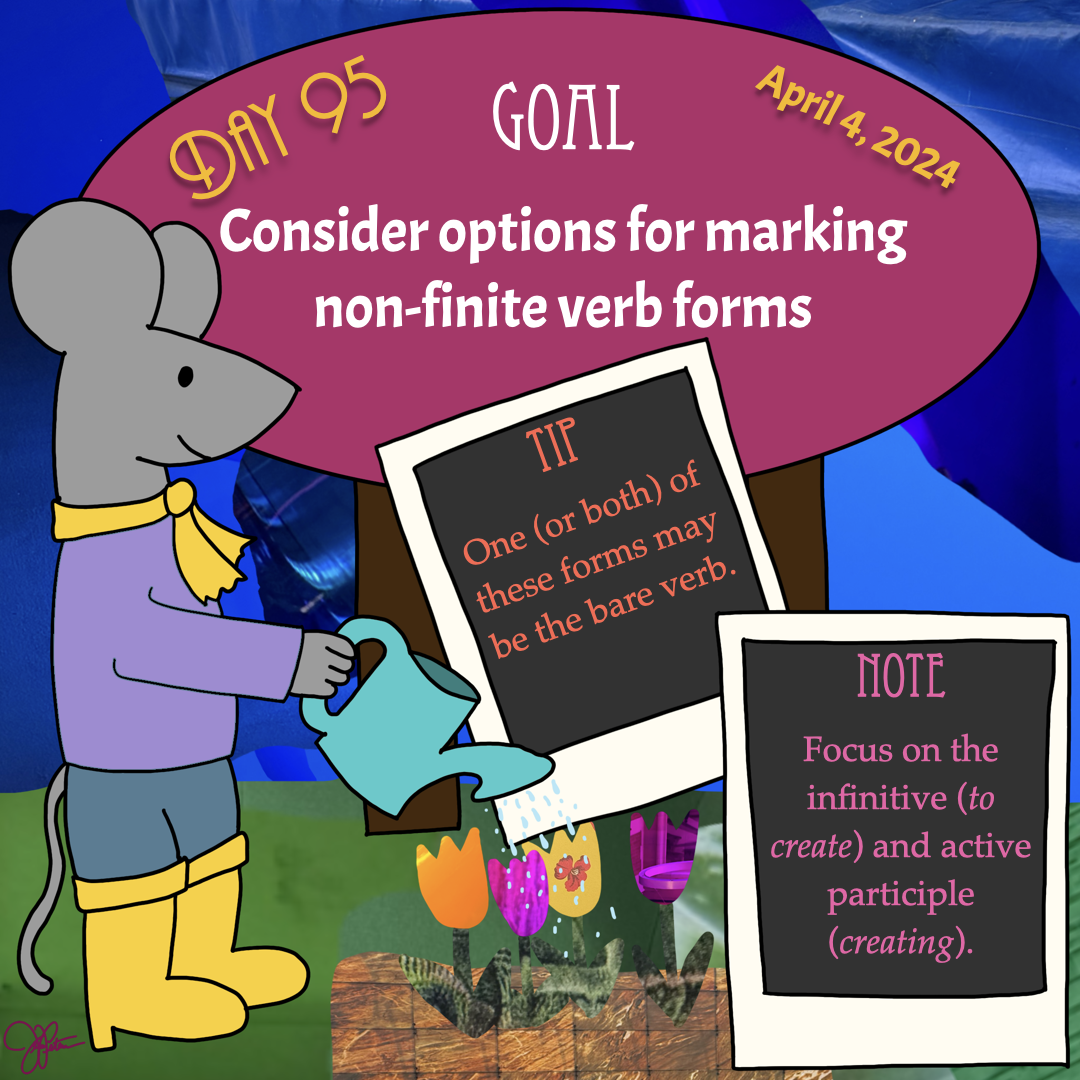
Day 95: April 4, 2024
Goal: Consider options for marking non-finite verb forms Note: Focus on the infinitive (to create) and active participle (creating). Tip: One (or both) of these forms may be the bare verb. Work focus: Learn/Brainstorm/Try Consider whether you want to specifically mark the infinitive form of a verb (e.g. to speak, hablar, sprechen) and, if so,…